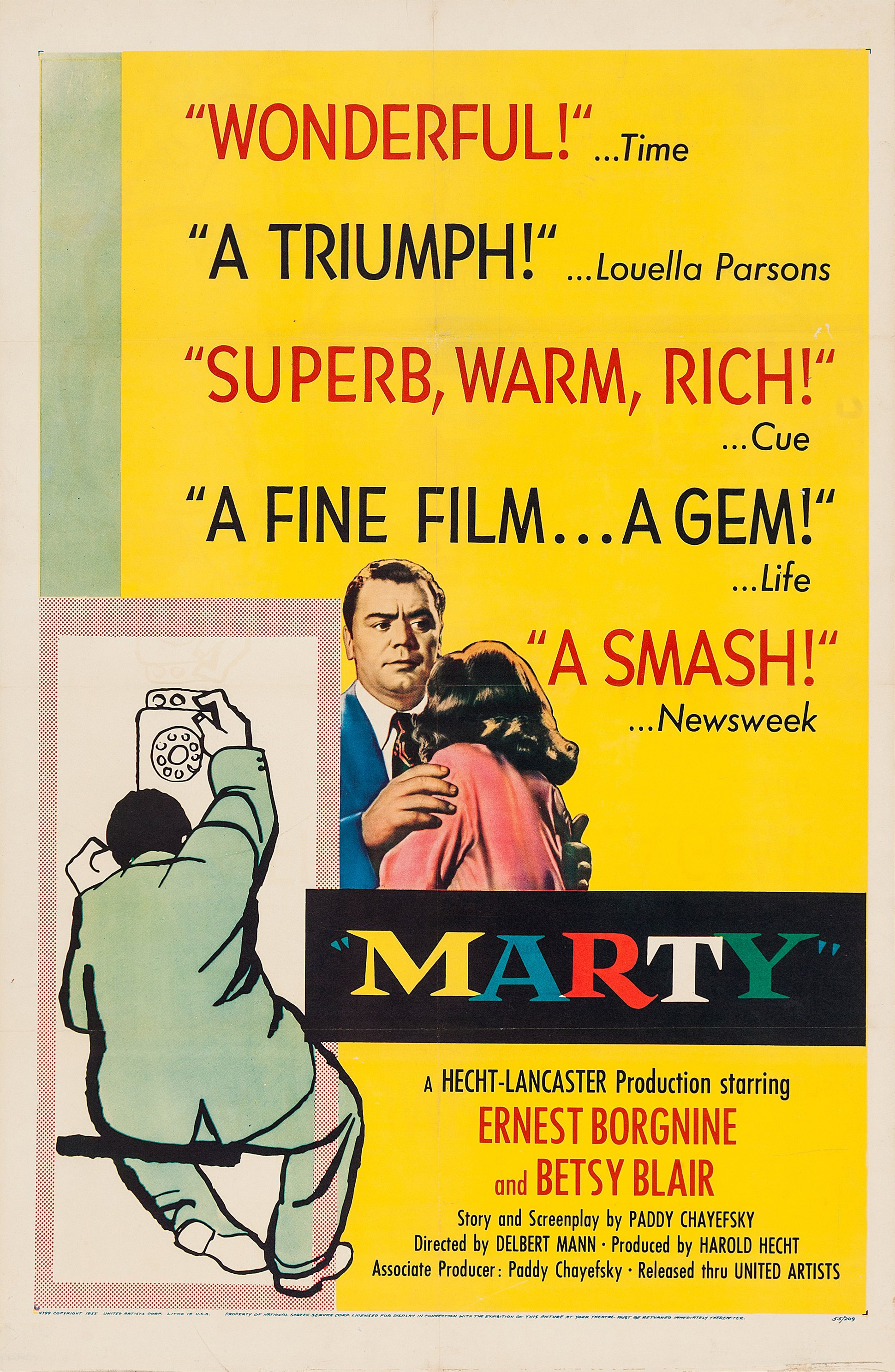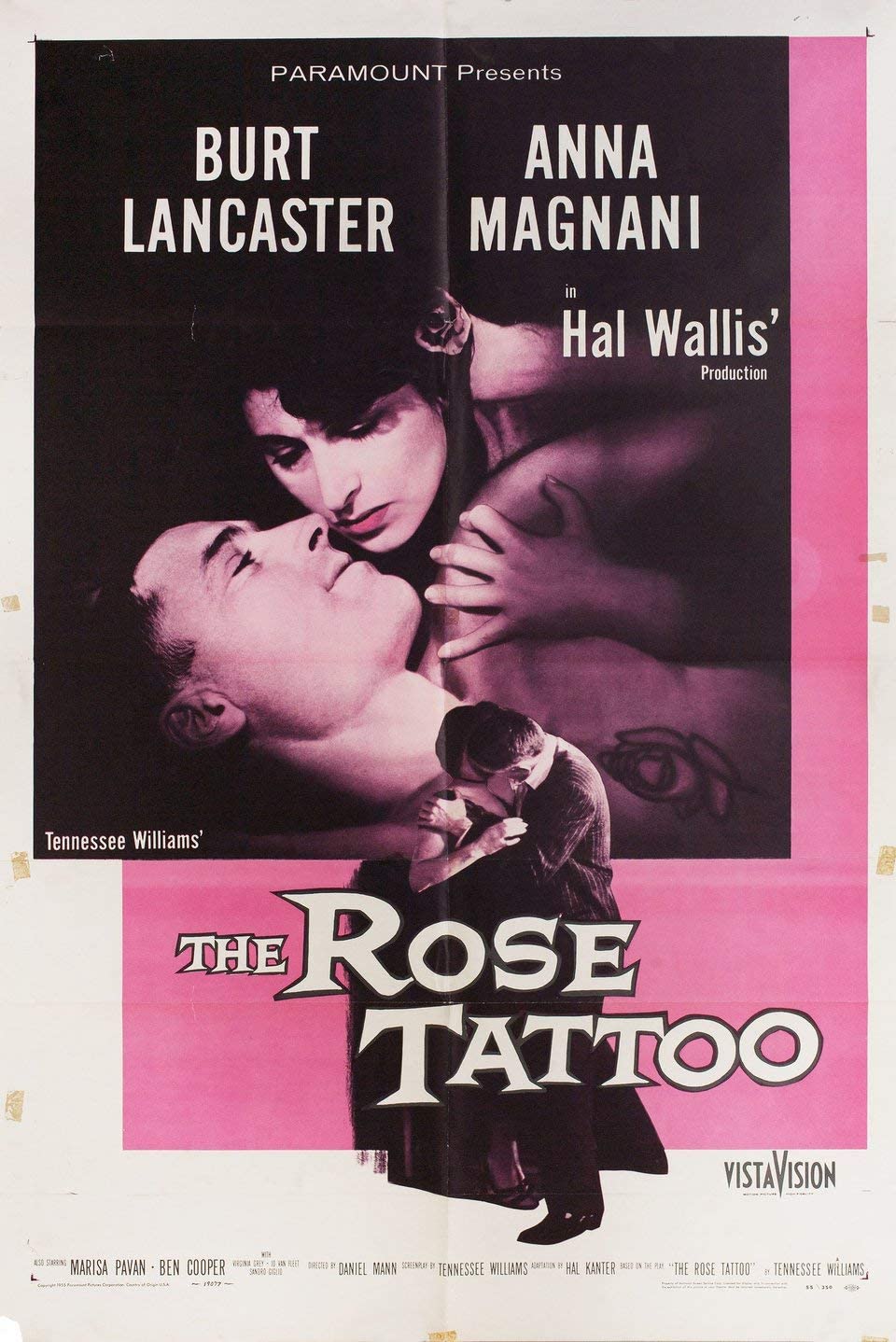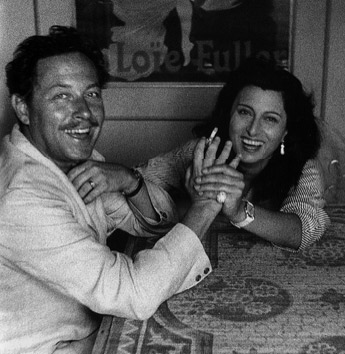 Williams and MagnaniJose here, to continue celebrating the centennial of American playwright and icon Tennessee Williams.
Williams and MagnaniJose here, to continue celebrating the centennial of American playwright and icon Tennessee Williams.
Williams grew up watching movies. He was one of the major playwrights who learned his craft, not through Shakespeare and Moliere but through the works of De Mille and Chaplin. This can easily be seen in the way his works lack the naturalism of "the theater" and their reality is more grounded on high drama, film noir and even slapstick. You can almost picture the young Williams sitting inside a dark movie theater, enthralled by the images projected on the screen (makes a case for why some of his characters are usually described as "larger than life" huh?).
During one of his many movie adventures, Tennessee spotted Anna Magnani. I like to assume it was Rome, Open City, but of course am probably wrong.
He became so obsessed with the Italian diva that he ended up writing an entire play just for her: The Rose Tattoo. When he approached her to play the leading role of Italian widow, Serafina Delle Rose, Magnani declined because she was unsure her limited English skills would do justice to the play. (Maureen Stapleton did the role on Broadway instead, winning the Tony in 1951.)
This didn't stop Tennessee and Anna from starting a friendship that would endure until their deaths. Williams described Magnani,
I never saw a more beautiful woman, with such big eyes and skin like Devonshire soap.
The temperamental Magnani felt at home with Tennessee and when the time came to take The Rose Tattoo to the movies, she obliged.
She took on the role of Serafina with such intensity and passion that she ended up taking home the Oscar for Best Actress. She didn't attend the ceremony because she thought she would lose, even after she'd won the critics' awards, the Golden Globe and BAFTA for the role.
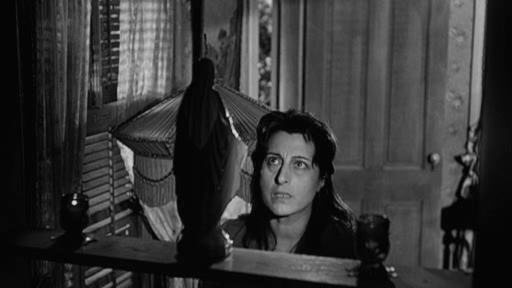
The film might not be counted as one of the strongest Williams' adaptations (and the play itself is often regarded as a minor work) and in the years that followed, the movie earned a reputation for being full of stereotypes and even for discriminating against Italian immigrants.
Sure, the film is filled with symbols, bare chested lovers (Burt Lancaster mostly), weeping, screaming, gossiping neighbors, Virgin Marys (and nods to virginity), wine, loud laughing fits and thick accents but few back then realized that the film wasn't being touted as a portal into reality. It was an interpretation of the immigrant experience by someone whose knowledge consisted mostly of neorealist films.
More than this, the movie was a tribute to Anna Magnani. Not the Magnani Williams came to know later, but the Magnani who embodied a nation in the aftermath of WWII. The one Williams had met at the movies.
The Rose Tattoo therefore, is less about the characters than about what inspired their creation. The play is filled with nods to Williams' own life and the motifs that would define his work (sex, passion, humid settings, dead men...) The very tattoo in the title can mean much more than the ideas associated with the flower (love for example) since Rose was the name of Tennessee Williams' favorite sister. I'm sure she accompanied him to see Magnani's films on many occassions...
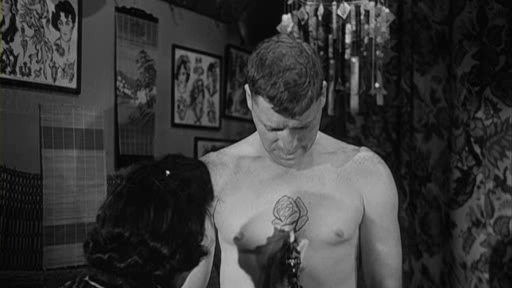
Therefore, we understand that the role of Williams in the play is that of the tattoo artist, imprinting precious memories on the skin of his characters and his audience. But above all, imprinting them onto his own creative skin. Some works of art are misunderstood because the are too personal and deciphering their meaning only leads to migraines and shouts of "pretentious".
The Rose Tattoo would be one of these works; so private, so intimate; that we carry them around with us all the time, waiting only for a casual slip of the sleeve, a careless morning after, an accidental movement, to share them with others who might be fascinated, disgusted or even indifferent to their nature.
 Sunday, March 21, 2021 at 8:24AM
Sunday, March 21, 2021 at 8:24AM 